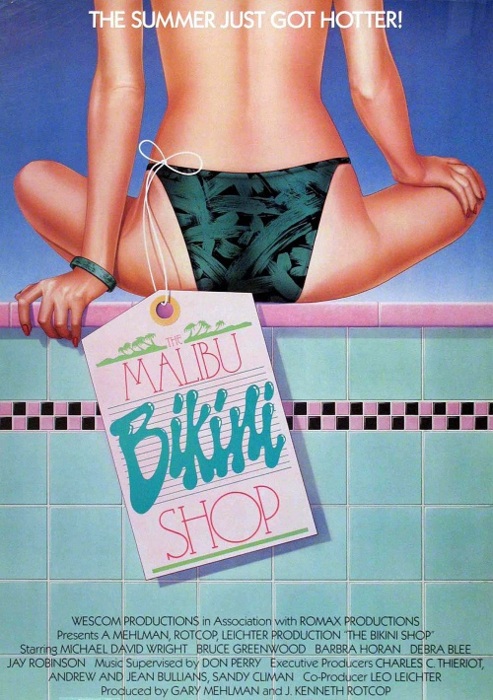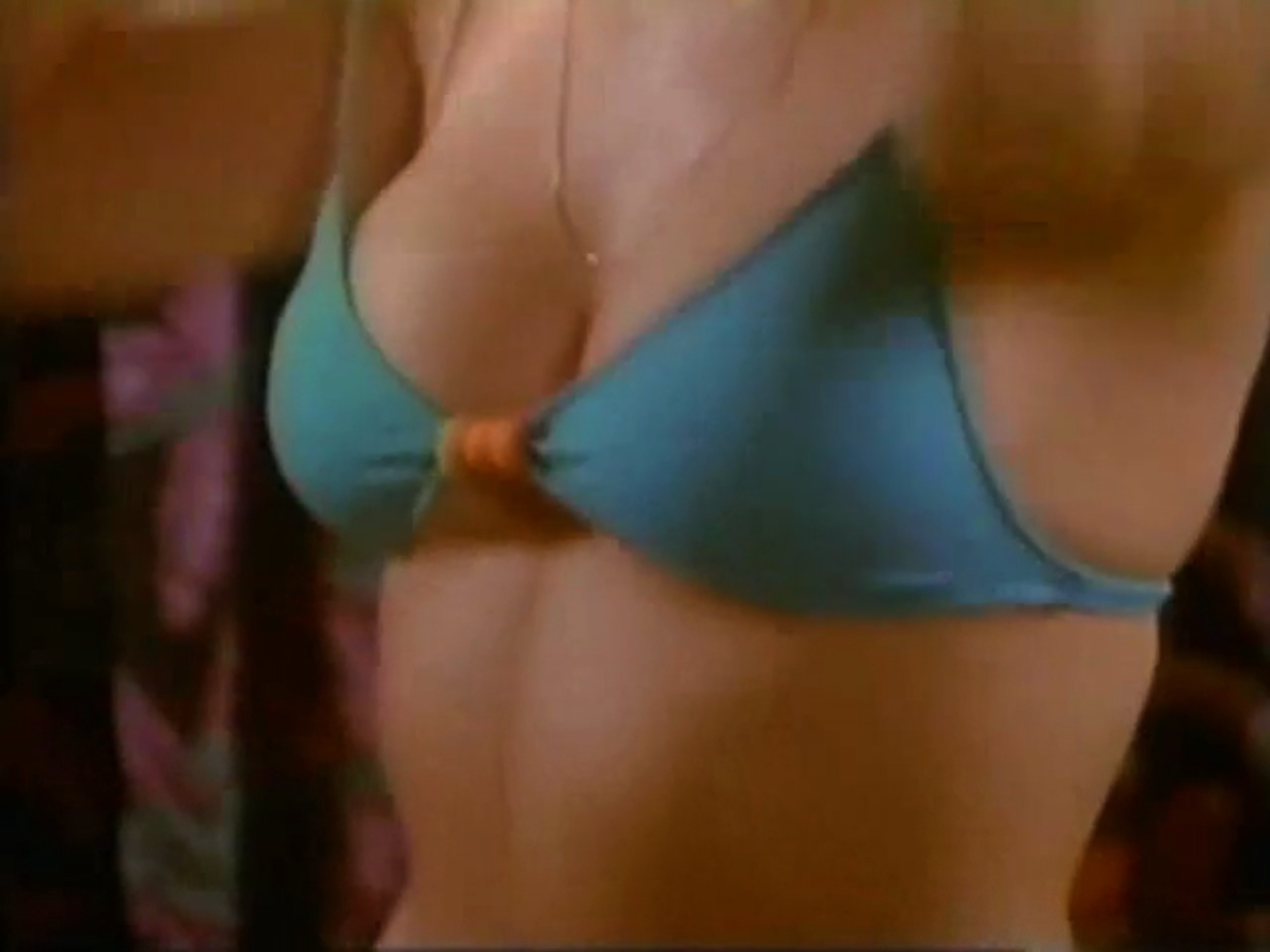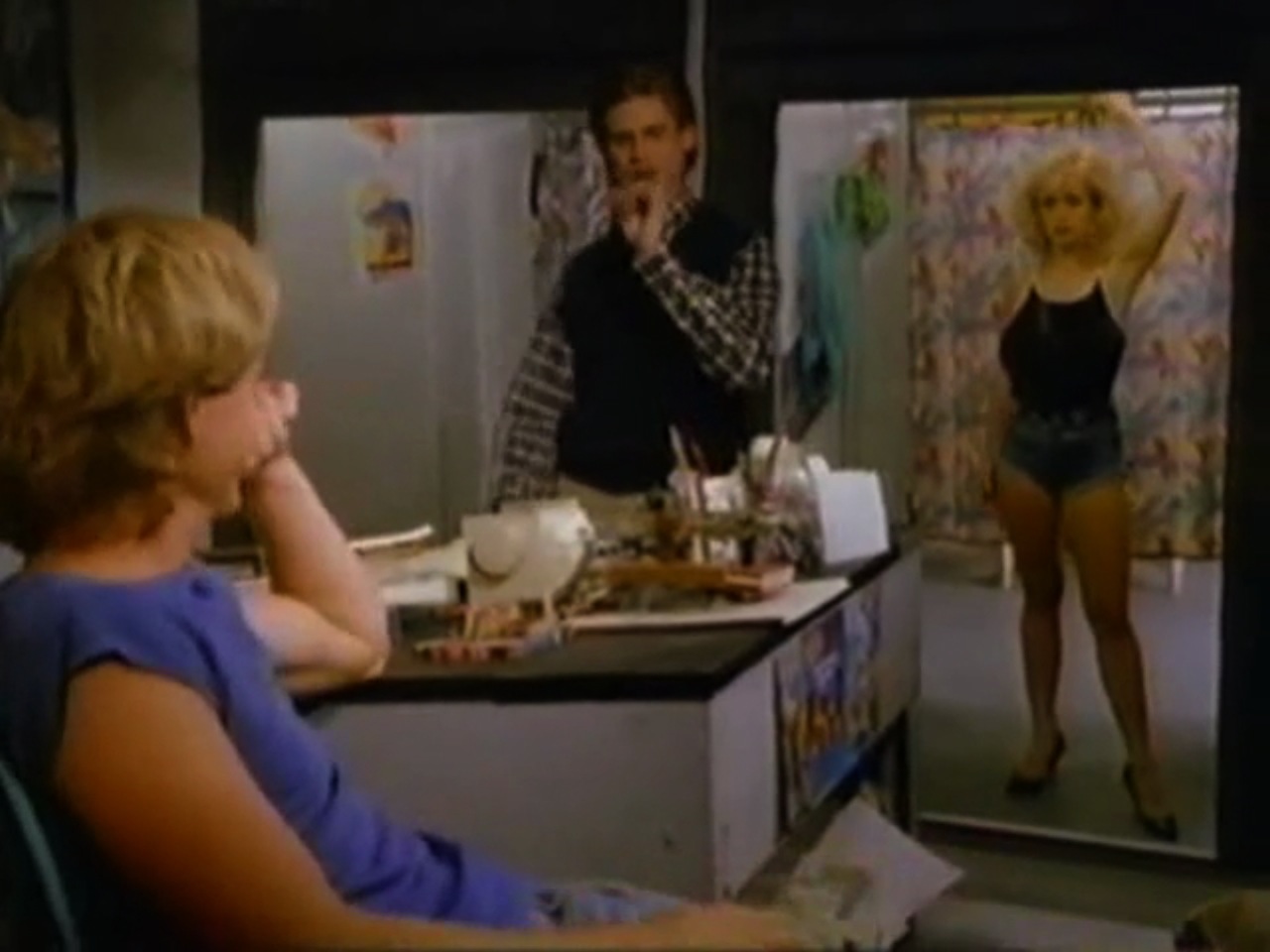B-Movie Bullsh*t
Part Sixteen
The Malibu Bikini Shop
1986
Synopsis
At his business school graduation party, Alan Finston learns he’s inherited a 51% interest in his late Aunt Ida’s beachside swimwear store. He leaves his spoiled fiancé, Jane, behind to prepare the store for sale, only to discover that his ne’er-do-well brother, Todd, is the owner of the other 49%. Todd wants to keep the store, but can’t stop Alan from selling it to the leader of a local religious cult. When Alan learns that the cult leader plans to close the store and open a recruitment center in its place, he has a change of heart and asks to buy it back, pissing off a visiting Jane in the process. The cult leader agrees, but demands an additional $6,000 in cash within two weeks. Determined to raise the money, Alan, Todd and the shop’s three female staff members hand-sew 50 army-inspired bikinis designed by Ronnie, the beautiful brunette who’s had a crush on Alan since they first met. With just a few hours to go before the money has to be paid, they do everything they can to sell their new bikinis, while the angrily scorned Jane and her father try their best to make sure they don’t succeed.
The Malibu Bikini Shop is as purely a product of the 1980s as Culture Club, Ray-Bans, and Dynasty. Whereas the fun, lightweight bikini movies of the 1960s (most famously the ones starring Frankie & Annette) were all frivolous fantasy pictures featuring the complications created by glamorous Italian heiresses (Muscle Beach Party), rich English pop stars (Bikini Beach), and mermaids (Beach Blanket Bingo), this 80s incarnation of the genre eschews whimsy in favor of depicting the battle between uptight capitalism and unapologetic hedonism. What makes the film especially evocative of its decade is that the battle ends in a tie, with both sides coming to a better understanding of the other and embracing the idea that one shouldn’t be afraid to party, so long as you’re making money at the same time.
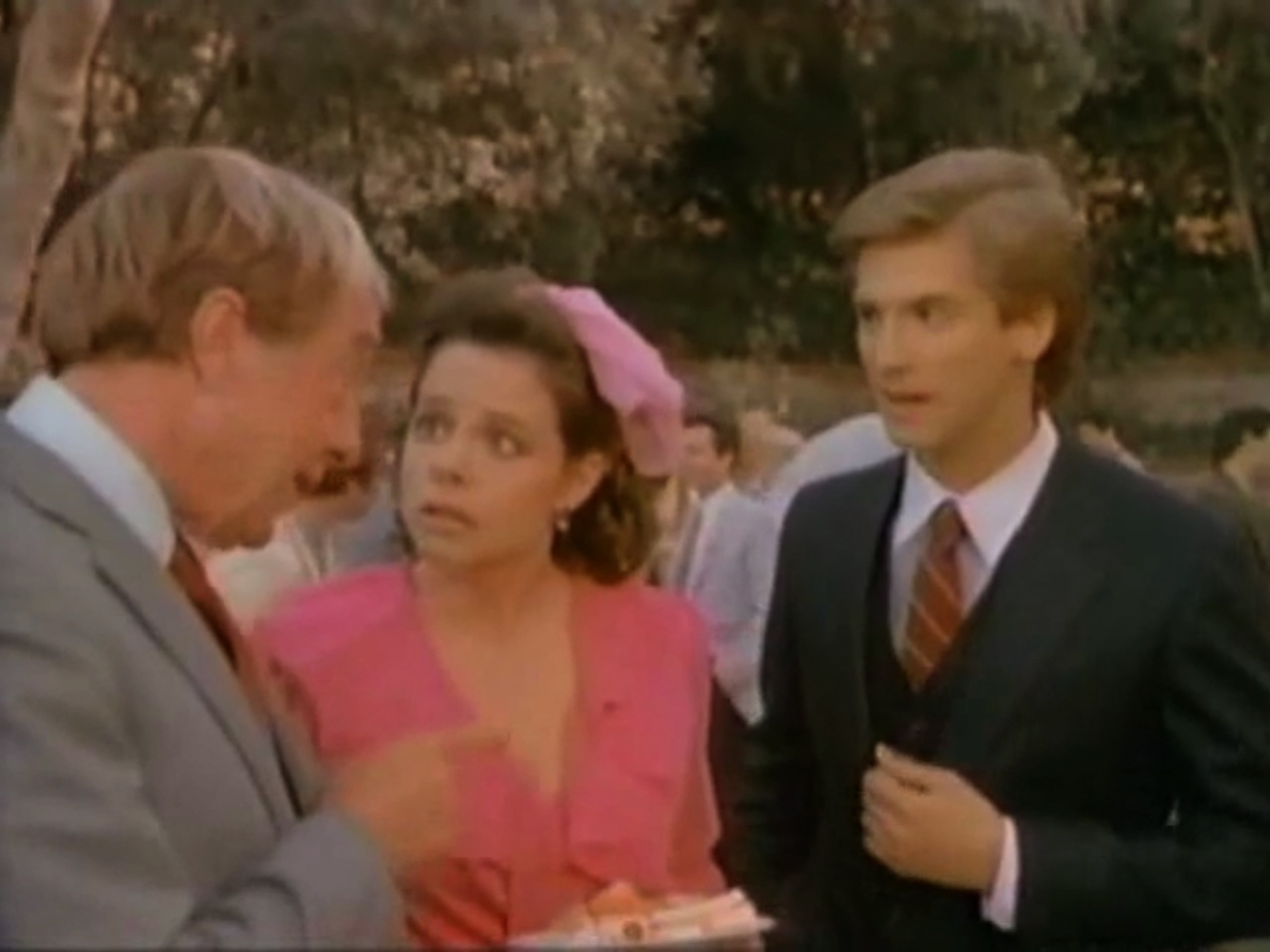 Written and directed by David Wechter (who remains best known as the co-writer/co-director of the cult 1980 Disney film Midnight Madness), TMBS is strongly reminiscent of Paul Brickman’s much, much, much better Risky Business, which also featured an ambitious young wannabe-yuppie as its supposedly sympathetic protagonist. The clear difference is that Brickman had Tom Cruise, who actually did manage to imbue some likeability into the role of Joel Goodsen, while Wechter cast Michael David Wright, whose acting career justifiably ended almost as soon as it began and who went on to make a living as a network executive. It’s all the difference in the world.
Written and directed by David Wechter (who remains best known as the co-writer/co-director of the cult 1980 Disney film Midnight Madness), TMBS is strongly reminiscent of Paul Brickman’s much, much, much better Risky Business, which also featured an ambitious young wannabe-yuppie as its supposedly sympathetic protagonist. The clear difference is that Brickman had Tom Cruise, who actually did manage to imbue some likeability into the role of Joel Goodsen, while Wechter cast Michael David Wright, whose acting career justifiably ended almost as soon as it began and who went on to make a living as a network executive. It’s all the difference in the world.
Oh, and Paul Brickman had vision and talent.
It doesn’t help that TMBS ups the ante by giving us an 80s archetype even more tiresome than the ambitious young Republican—the slobberific party animal. Unlike the part of Alan, the role of his brother Todd is actually played by a very talented actor—Canada’s own Bruce Greenwood—but he’s miscast here and incapable of convincing us that we wouldn’t want to beat Todd to death with a tire iron within minutes of meeting him.
The result is cliché battling cliché, leaving the viewer to impatiently wait for the plot to stop and allow for the film’s true raison d’etre to show itself.
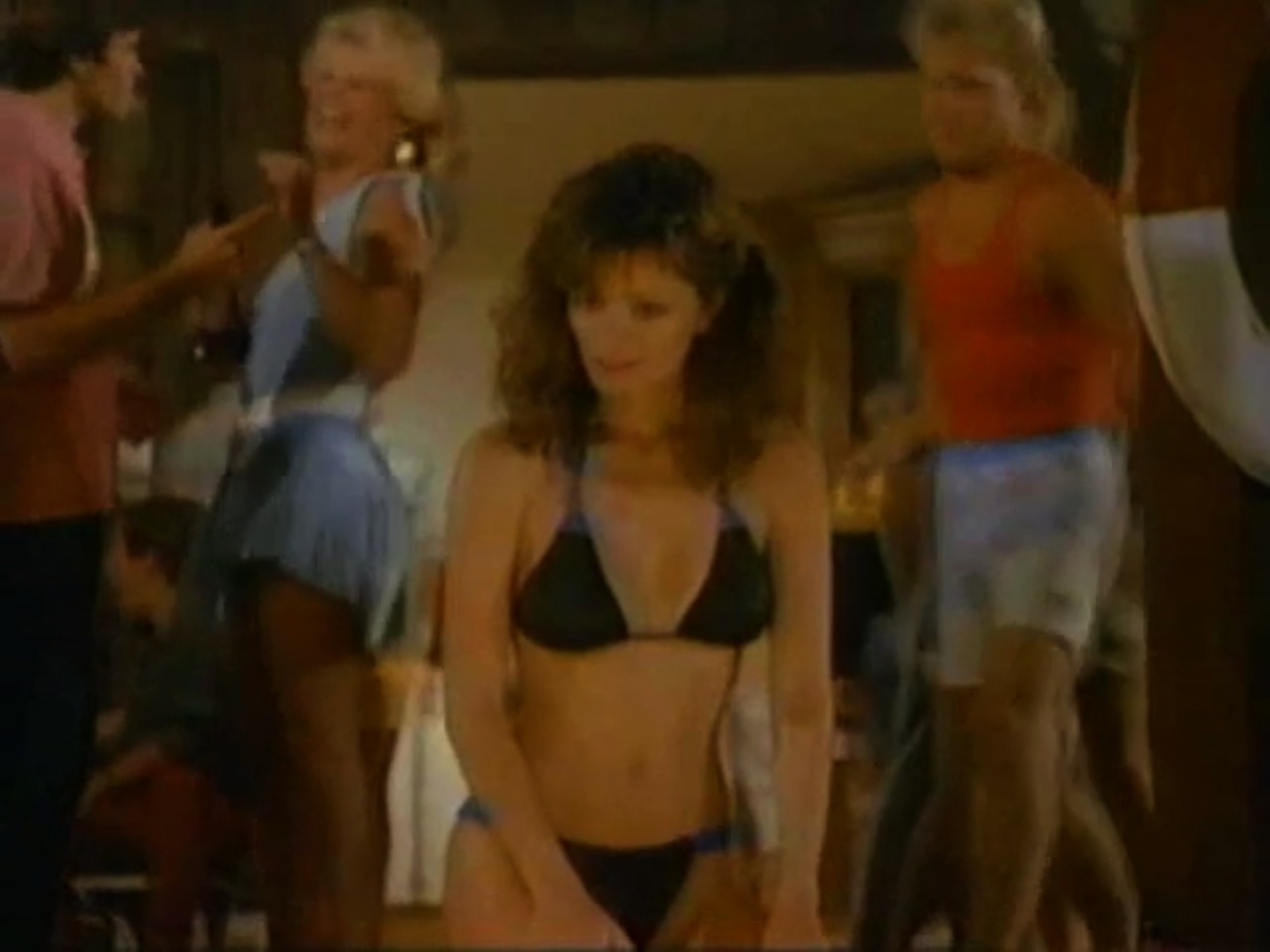 There’s a certain promise inherent in any 80s movie with the word “bikini” in its title, that its 60s predecessors were not also allowed to make—that at some point, hopefully more than once, twice, or thrice, those bikinis would come off and we would get to see what was barely being hidden from us. TMBS attempts to make good on this promise, but its prurience lacks conviction.
There’s a certain promise inherent in any 80s movie with the word “bikini” in its title, that its 60s predecessors were not also allowed to make—that at some point, hopefully more than once, twice, or thrice, those bikinis would come off and we would get to see what was barely being hidden from us. TMBS attempts to make good on this promise, but its prurience lacks conviction.
The film’s most famous nude scene serves as proof of the film’s ambivalence about the only reason anyone has ever watched it. In it, a stacked blond customer (Bobbi Pavis, credited as “Stunning Girl”) enters one of the store’s changing rooms, unaware that Todd has equipped them with two-way mirrors in order to commit a crime that could now result in jail time, but in 1986 was considered hilarious. He marvels at the sight of her removing her top, while conservative, no-fun-asshole Alan looks away. But when Todd leaves, Alan allows his mask of decorum to fall away and is punished by the sight of an overweight woman trying to get into a bikini that clearly doesn’t fit her.
This sudden juxtaposition of the attractive and repellent is meant to be funny (although you can tell the movie was made in the 80s because the overweight woman is shown attempting to put on the bikini over her very large underwear—today that same scene would be shot with her completely naked), but there’s a tangible hostility inherent in the moment that makes it clear Wechter wants to punish us for enjoying the sight of Pavis’ copious breasts in the same way Alan is punished for giving into his own urge to peek.
Interestingly, though, the one person who gets away without harm in this moment is the man who instigated it. Although Alan is obviously the film’s protagonist and has the largest character arc, Todd is clearly meant to serve as the film’s moral center, which is odd since he’s very clearly a selfish, lazy manchild who’s only interested in his own immediate happiness.
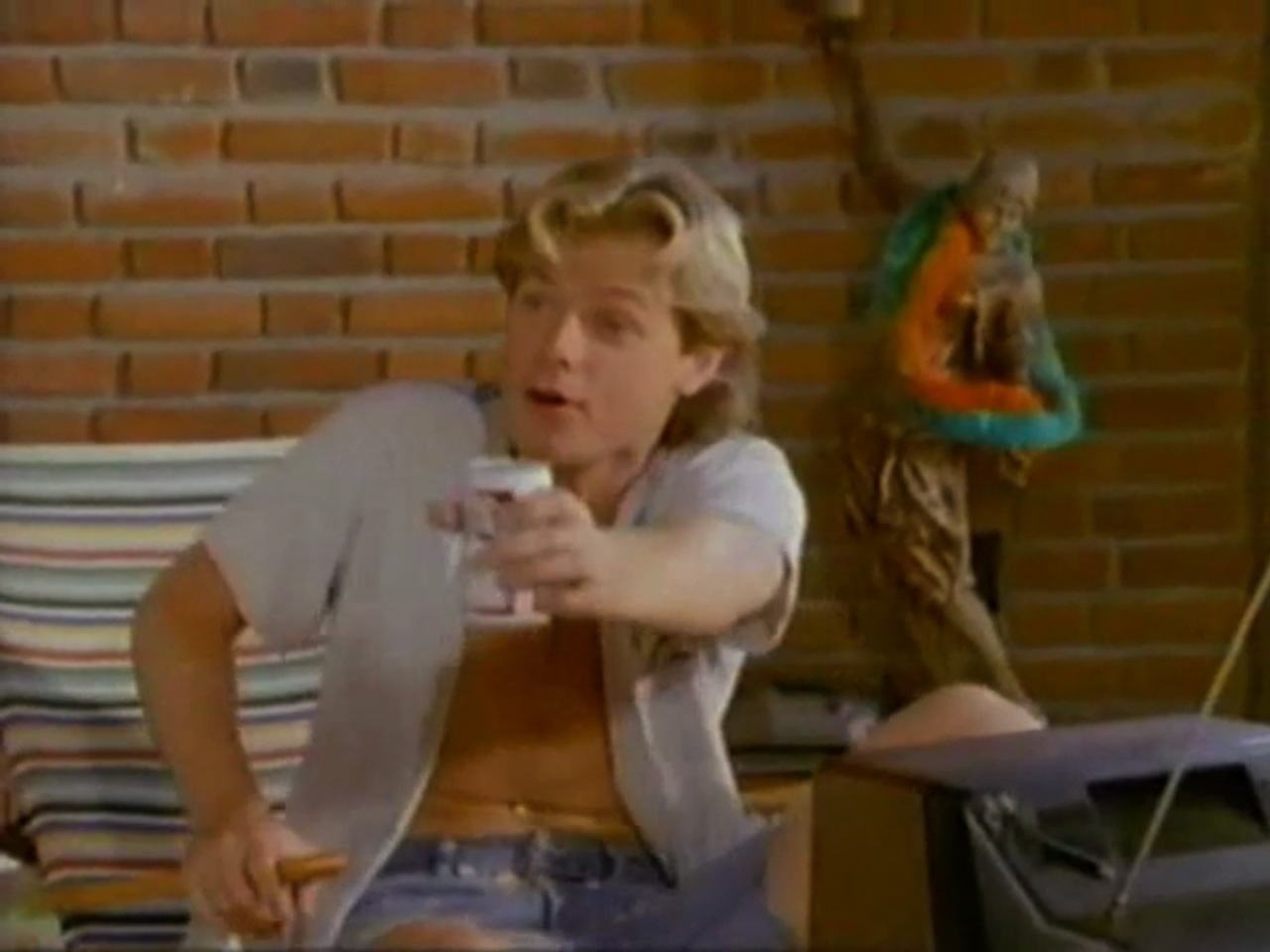 As different as they appear, both Alan and Todd have embraced the Reagen-era belief in the virtue of self-interest. Alan insists on using his 1% controlling interest in the store to override Todd’s desire to keep it, while Todd ignores anyone who might impede his ability to have a good time. While Alan succeeds in removing the stick from his butt by the end of the picture, Todd—who the film has portrayed as right more often than wrong—remains unchanged. When Alan discovers that the surgical thread they used to sew the bikinis is designed to dissolve in water he runs to tell Todd, who responds by saying he knew that all along and watches enthusiastically as a group of attractive women dressed in the swimsuits are quickly robbed of their dignity.
As different as they appear, both Alan and Todd have embraced the Reagen-era belief in the virtue of self-interest. Alan insists on using his 1% controlling interest in the store to override Todd’s desire to keep it, while Todd ignores anyone who might impede his ability to have a good time. While Alan succeeds in removing the stick from his butt by the end of the picture, Todd—who the film has portrayed as right more often than wrong—remains unchanged. When Alan discovers that the surgical thread they used to sew the bikinis is designed to dissolve in water he runs to tell Todd, who responds by saying he knew that all along and watches enthusiastically as a group of attractive women dressed in the swimsuits are quickly robbed of their dignity.
The moral then seems to be that selfish, extremely questionable behaviour is entirely acceptable if it’s in service of a good time. Since watching TMBS isn’t a good time, though, it’s hard to justify its similar impropriety.
 That said, there is at least two good things about the film. Former Miss Texas, Barbara Horan (now Amanda Horan Kennedy, owner of a successful bra company) is very appealing as Ronnie, the gorgeous brunette who likes Alan for reasons that are explained, but still don’t seem the slightest bit plausible. Not necessarily a strong actress, she still manages to leave a good impression and earns far more sympathy than your typical fantasy dream girl character.
That said, there is at least two good things about the film. Former Miss Texas, Barbara Horan (now Amanda Horan Kennedy, owner of a successful bra company) is very appealing as Ronnie, the gorgeous brunette who likes Alan for reasons that are explained, but still don’t seem the slightest bit plausible. Not necessarily a strong actress, she still manages to leave a good impression and earns far more sympathy than your typical fantasy dream girl character.
But if I had to pick TMBS’s one redeeming moment, it would have to be the extremely gratuitous, nonsensical dance sequence that occurs when Ronnie unveils her new swimsuit designs for the first time. In terms of style and content it bears no relation to any other sequence from the movie, which is probably why it was easily my favourite part of the whole movie.
To no one’s surprise, The Malibu Bikini Shop is a bad movie, but the problem isn’t inherent in its premise or genre, but rather one of execution and confused philosophy. The truth is that the film is undone by David Wechter’s clear ambition to make a film that was more than an excuse to bare some T & A. Had he stayed true to just that noble ambition the film probably would have still sucked, if only because he isn’t a talented filmmaker, but it at least would have spared us several moments of agony in the process.
